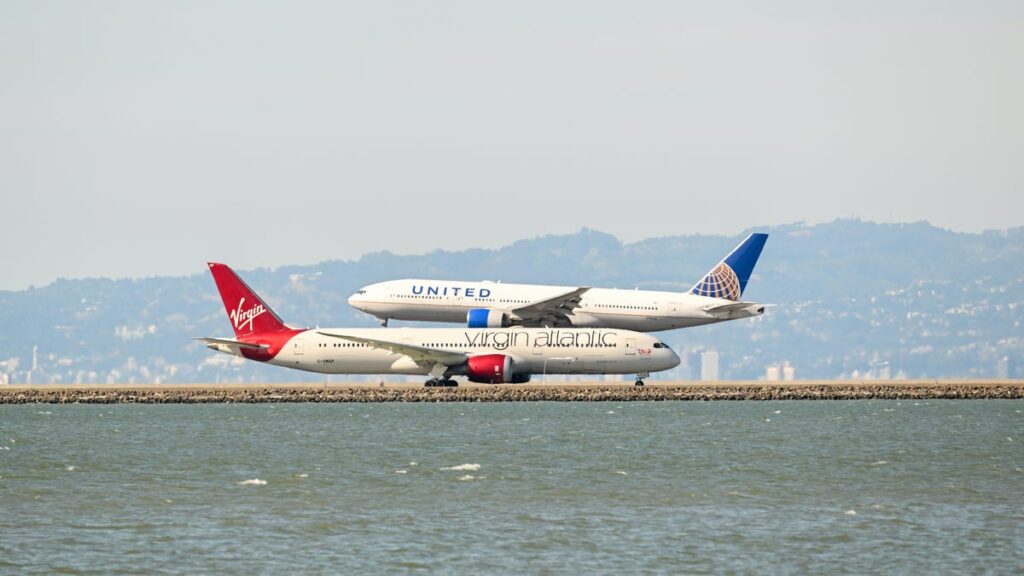Airlines Are Blaming Weather For Flight Cancelations But That's Not Entirely True

America is in its third day of intense flight cancellations and delays sweeping the nation—with United Airlines being the hardest hit. While it’s true, intense storms did hit the east coast, rain and wind doesn’t explain day three of delayed or cancelled flights.
Outdated Air Traffic Technology Is Plaguing Your Travel
These cancelations are, in fact, quite predictable. Everyone from Airplane manufacturers, the Federal Aviation Administration and unions representing pilots and flight attendants have been ringing the alarm bells ever since airline travel began to pick up following the easing of COVID-19 lockdowns: There just aren’t enough bodies to keep planes in the air and on time.
We reported on data from the FAA last week which details the problem:
Between January of 2019 and February of 2023, 1.6 million flights were collectively delayed 5.3 million hours. That’s over 605 years worth of delays that were primarily caused by issues within the airline’s control such as maintenance and crew problems, aircraft cleaning and baggage loading, according to the data.
CNN points out that, despite a $54 million shot in the arm from the American taxpayer in COVID relief, airlines still dramatically slashed staff to the barest of bones. When travel began to pick up again, the airlines didn’t have the staff or aircraft to accommodate the influx of passengers. From CNN:
The result has been that domestic US airline capacity, as measured by the number of available seats adjusted for miles flown, is still down 10% in the current quarter compared to the second quarter of 2019, ahead of the pandemic, according to data from Cirium, an aviation analytics firm.
And when problems occur, finding seats for passengers whose flights have been canceled becomes a problem, particularly at busy travel periods.
United Airlines CEO, however, places the blame squarely on the feds.
“The FAA frankly failed us this weekend,” said United Airlines CEO Scott Kirby in an internal company memo shared with CNN. The airline canceled 461 flights this past Saturday and Sunday and delayed another 1,972 flights, according to data from flight tracking site FlightAware.
Kirby says that on Saturday, the FAA reduced arrival rates at its major hub at Newark Liberty International Airport by 40% and departure rates by 75%, which was “almost certainly a reflection of understaffing/lower experience at the FAA.”
And then the Flight Attendants union said no, actually, United does have a hand in all this chaos:
But one of the major unions at United said the problem was not just the FAA but also United management.
“The levels of frustration are high and it feels as if there is no solution in sight – especially for those who have been on duty for extended periods of time,” the Association of Flight Attendants said in a memo shared with CNN.
The FAA noted just this past April that a shortage of air traffic controllers in the northeast could cause chaos over the skies of New York and New Jersey. The agency even asked airlines to reduce the number of flights coming out of Newark, JFK and LaGuardia airports—three of the busiest airports in the U.S. While the administration was able to fill those jobs, but folks training in something as complicated a air traffic control often take years to get up to speed.
And being a pilot or flight attendant right now is no walk in the park. Many were driven out of the business by entitled passengers freaking out over mask requirements. Lockdowns also took a lot of joy out of the biz, as there was less freedom to roam to new and exotic locales. A supposed pilot shortage, much like the much lauded trucker shortage or the problems with trains, is a myth as well.
None of this bodes well for the next big travel holiday, which starts this weekend for the 4th of July. Traveling this weekend might prove to be as big a mess as Southwest passengers experienced over Christmas. Just don’t blame it on the weather.



